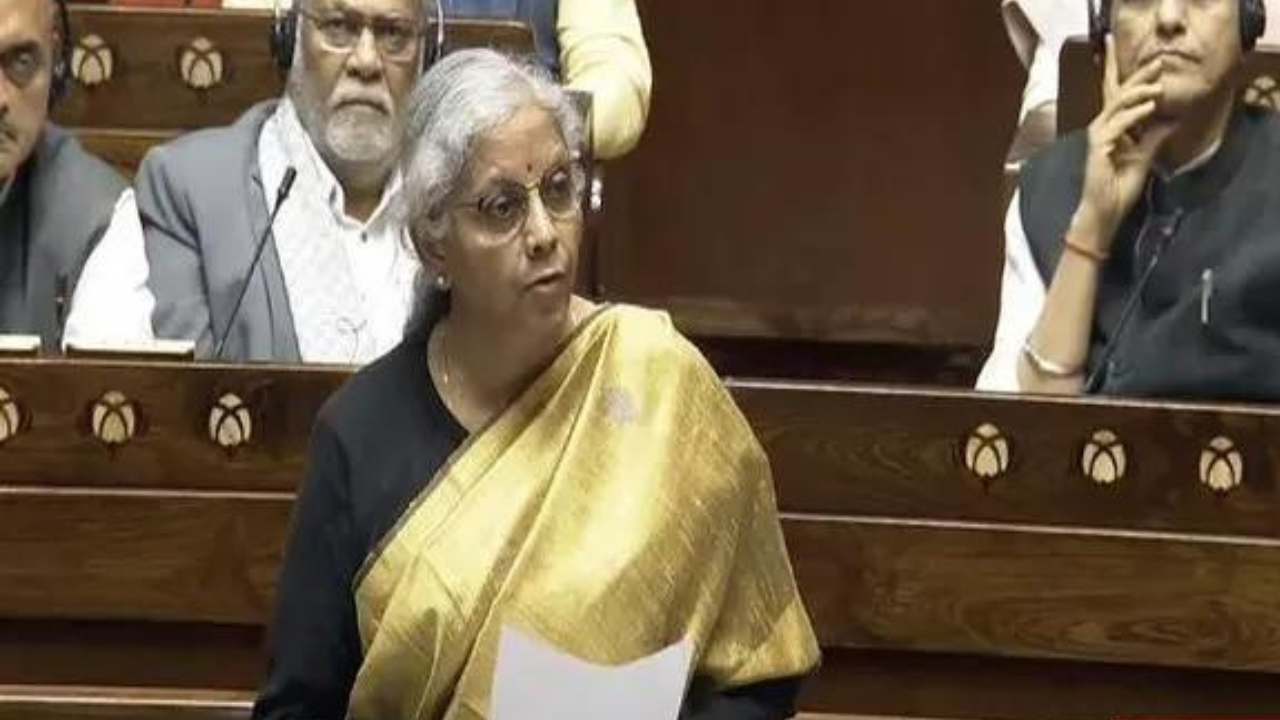NEW DELHI: In the ongoing Winter session of Parliament, finance minister Nirmala Sitharaman highlighted India’s steadfast position as the fastest-growing major economy, with all sectors in good standing and making significant contributions to economic activities.
Sitharaman said, “The second-quarter growth was very high; it is the highest in the world.We continuously maintain that momentum of being the fastest-growing economy.” Over the past eight years, India has ascended from being the 10th largest economy to the fifth largest, showcasing remarkable economic progress.
Highlighting diverse growth across sectors, Sitharaman attributed the success of the manufacturing sector to government initiatives such as the Make-In-India program and the production-linked incentive (PLI) scheme, positioning India as the world’s second most sought-after manufacturing destination.
The finance minister informed the House that direct tax collection witnessed a growth of 21.82% until November 9 this year, and monthly GST collections have stabilized at Rs 1.6 lakh crore—a positive indicator of economic growth.
Addressing concerns about unemployment, Sitharaman refuted claims, stating that the unemployment rate has declined from 17.8% in 2017-18 to 10%. Additionally, she highlighted that 13.5 crore people have emerged from ‘multi-dimensional’ poverty in the last five years.
Opposition members raised apprehensions about rising prices in the country. Sitharaman responded by assuring that the government has implemented several measures to curb inflation. Retail inflation, based on the consumer price index (CPI), reached a high of 7.8% in April 2022 but has since approached the Reserve Bank’s target of 4%.
Sitharaman also highlighted the progress various central government schemes have made since 2014, including ‘Swachh Bharat Abhiyan‘, ‘PM Jan Aushadi Yojana‘, Ayushman Bharat, etc. She also addressed various concerns such as the value of the rupee against the dollar, stating, ‘Rupee has lost less than 1% of its value this year’.
She urged all other leaders not to politicize certain issues like malnutrition and women’s issues.
She concluded her address by applauding the central government and the progress they have made since 2014.
(With inputs from agencies)
Sitharaman said, “The second-quarter growth was very high; it is the highest in the world.We continuously maintain that momentum of being the fastest-growing economy.” Over the past eight years, India has ascended from being the 10th largest economy to the fifth largest, showcasing remarkable economic progress.
Highlighting diverse growth across sectors, Sitharaman attributed the success of the manufacturing sector to government initiatives such as the Make-In-India program and the production-linked incentive (PLI) scheme, positioning India as the world’s second most sought-after manufacturing destination.
The finance minister informed the House that direct tax collection witnessed a growth of 21.82% until November 9 this year, and monthly GST collections have stabilized at Rs 1.6 lakh crore—a positive indicator of economic growth.
Addressing concerns about unemployment, Sitharaman refuted claims, stating that the unemployment rate has declined from 17.8% in 2017-18 to 10%. Additionally, she highlighted that 13.5 crore people have emerged from ‘multi-dimensional’ poverty in the last five years.
Opposition members raised apprehensions about rising prices in the country. Sitharaman responded by assuring that the government has implemented several measures to curb inflation. Retail inflation, based on the consumer price index (CPI), reached a high of 7.8% in April 2022 but has since approached the Reserve Bank’s target of 4%.
Sitharaman also highlighted the progress various central government schemes have made since 2014, including ‘Swachh Bharat Abhiyan‘, ‘PM Jan Aushadi Yojana‘, Ayushman Bharat, etc. She also addressed various concerns such as the value of the rupee against the dollar, stating, ‘Rupee has lost less than 1% of its value this year’.
She urged all other leaders not to politicize certain issues like malnutrition and women’s issues.
She concluded her address by applauding the central government and the progress they have made since 2014.
(With inputs from agencies)
